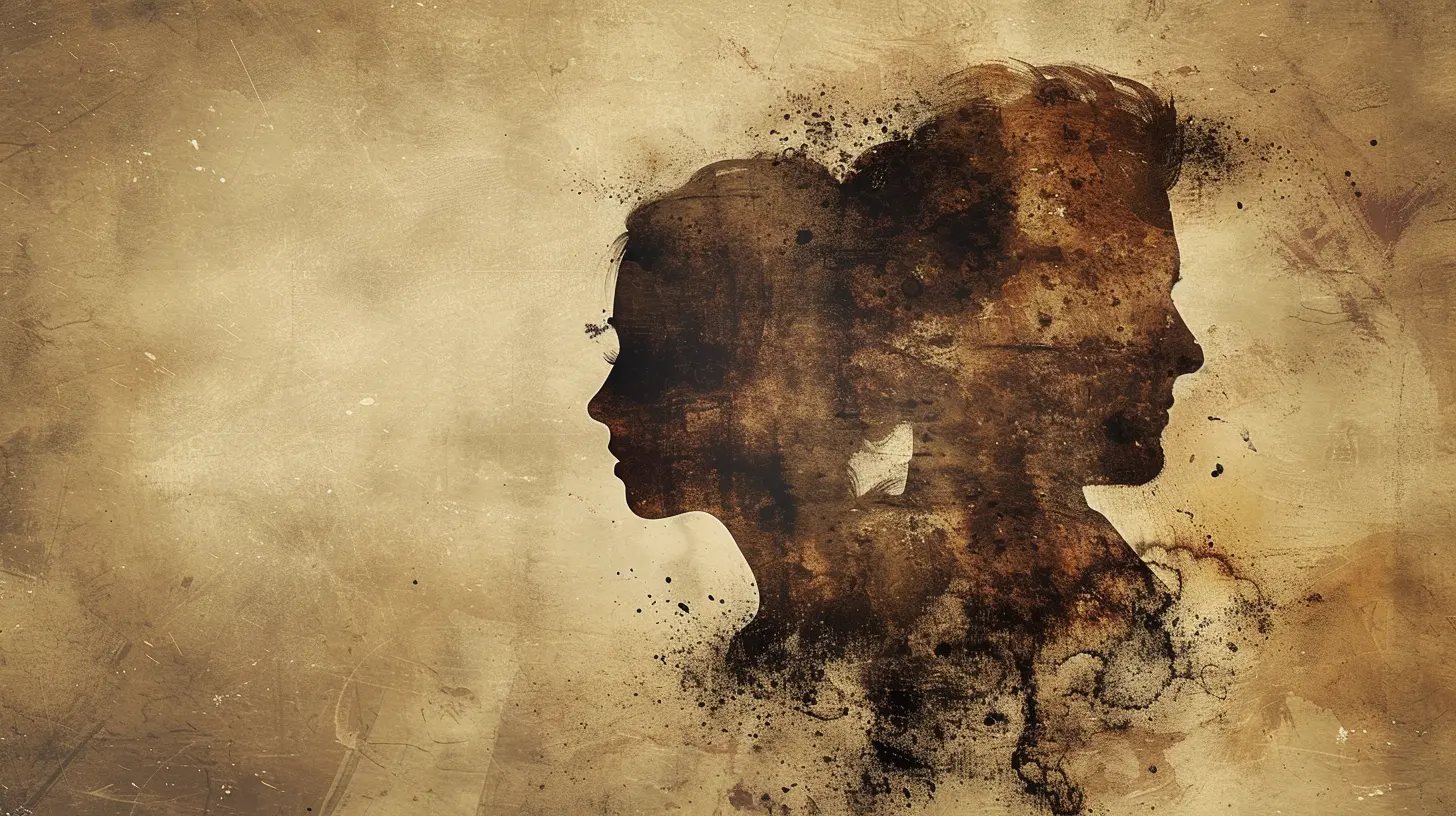Borderline Personality Disorder in Romantic Relationships: What You Need to Know
25 December 2024
When it comes to love, relationships can be as complex as they are beautiful. But when one partner has Borderline Personality Disorder (BPD), the complexities can feel like navigating a ship in stormy waters. If you're either dating someone with BPD or you have BPD yourself, you may find that certain aspects of the relationship are more challenging than usual. But don’t worry—you’re not alone, and it’s not hopeless. In this article, we'll dive into what BPD is, how it affects romantic relationships, and how both partners can work towards a healthier, more fulfilling connection.

What is Borderline Personality Disorder (BPD)?
Before we jump into the relationship dynamics, let’s break down exactly what Borderline Personality Disorder is. BPD is a mental health condition that falls under the category of personality disorders. It’s characterized by intense emotions, unstable relationships, distorted self-image, and impulsive actions. People with BPD often experience extreme mood swings, ranging from euphoric highs to deep emotional lows, sometimes within a matter of hours.BPD is more than just occasional moodiness or insecurity—it’s a deeply rooted emotional dysregulation that affects how a person interacts with themselves and others. Around 1.6% of the adult population is affected by BPD, but that number could be higher due to underreporting or misdiagnosis.
Key Symptoms of BPD
- Fear of Abandonment: People with BPD often have an overwhelming fear that their loved ones will leave them, even if there's no clear reason why.- Unstable Relationships: Relationships with people who have BPD can be intense and short-lived, swinging between extreme closeness and distance.
- Emotional Instability: Mood changes can be rapid and extreme, often in response to interpersonal triggers.
- Impulsive Behaviors: This can include substance abuse, reckless driving, or self-harm.
- Distorted Self-Image: Many individuals with BPD struggle with a fluctuating sense of identity, often feeling unsure of who they are.
- Chronic Feelings of Emptiness: It’s not uncommon for someone with BPD to feel consistently unfulfilled or hollow.
Now that we have a basic understanding of BPD, let’s get to the heart of the matter: how does BPD impact romantic relationships?

How BPD Affects Romantic Relationships
Being in a relationship with someone who has BPD can feel like a rollercoaster ride. One moment, everything is passionate and electric, and the next, you're in the middle of an emotionally draining argument. These ups and downs are typical in relationships involving someone with BPD because of the emotional instability that defines the disorder.Fear of Abandonment
One of the most significant challenges BPD presents in relationships is the intense fear of abandonment. Even the smallest perceived slight—like a late text response or a partner needing some alone time—can trigger a fear that the relationship is at risk. This fear can lead to clingy behavior, emotional outbursts, or accusations that the partner is going to leave, even if there's no evidence supporting it.For someone dating a person with BPD, this can be exhausting. You may feel like you constantly need to reassure your partner of your commitment to the relationship, and even then, it might never feel like enough.
Idealization and Devaluation (The Push-Pull Dynamic)
Another common feature in BPD relationships is what's called "splitting," or seeing people in black-and-white terms. Someone with BPD may initially place their partner on a pedestal, idealizing them to an almost unrealistic degree. In this phase, everything is perfect, and their partner can do no wrong.But then, often out of the blue, something happens that causes the person with BPD to feel disappointed or threatened. Suddenly, their partner goes from being the best thing ever to being the worst. This cycle of idealization and devaluation—also known as the "push-pull" dynamic—can make the relationship feel incredibly unstable.
Emotional Intensity
People with BPD often experience emotions more intensely than others. While this can make the highs of the relationship feel absolutely euphoric, it also means that conflicts or misunderstandings can escalate quickly. What might be a minor disagreement in most relationships can feel like a full-blown crisis in a relationship with someone who has BPD.For both partners, this emotional intensity can be difficult to handle. On one hand, the passion and closeness can be intoxicating, but on the other hand, the emotional volatility can be draining.
Trust and Insecurity
Because of their fear of abandonment and trust issues, people with BPD often struggle with jealousy and insecurity. They may constantly question their partner’s loyalty, even if there’s no reason to doubt it. This can lead to accusations, checking up on their partner excessively, or testing their partner’s commitment in various ways.If you’re on the receiving end of this behavior, you might feel like you’re always walking on eggshells, afraid of saying or doing something that will trigger an emotional reaction. Over time, this can create resentment and a breakdown of trust on both sides.

Communication Tips for Couples
Okay, so you’re in a relationship with someone who has BPD, and the rollercoaster can be overwhelming. What can you do to smooth out some of those ups and downs? Spoiler alert: it’s all about communication.1. Set Clear Boundaries
Boundaries are essential in any relationship, but they’re especially important when one partner has BPD. People with BPD often struggle with personal boundaries, so it’s important to be firm but compassionate when setting limits. For example, if your partner tends to call or text excessively when they’re feeling anxious, you can communicate that while you love them, you need some space to recharge, too.2. Use “I” Statements
When trying to communicate during a conflict, it’s tempting to place blame: “You always do this!” or “You never listen!” But this can escalate the situation. Instead, use “I” statements, like “I feel hurt when…” or “I need some space right now.” This makes your partner less likely to feel attacked and more likely to listen to what you’re saying.3. Practice Active Listening
Sometimes, people with BPD just need to feel heard. When they’re expressing their feelings—whether they’re upset or anxious—it’s important to practice active listening. This means making eye contact, nodding, and reflecting back what they’re saying to show that you understand. For example, “I can tell you’re feeling really anxious about this. Let’s talk through it.”4. Don’t Take It Personally
One of the hardest things about being in a relationship with someone who has BPD is not taking their emotional reactions personally. When they lash out or accuse you of abandoning them, it’s often more about their internal struggles than anything you’ve done. It helps to remind yourself that their emotional sensitivity is a part of their disorder, not a reflection of your worth as a partner.5. Seek Professional Help
Don’t underestimate the power of therapy—both for the person with BPD and for the couple as a whole. Individual therapy, especially Dialectical Behavior Therapy (DBT), can be incredibly effective for people with BPD. Couples therapy can also provide a safe space for both partners to express their feelings, work on communication, and strengthen their relationship.
Self-Care for Both Partners
In any relationship, it’s essential to take care of yourself, but self-care becomes even more critical when one partner has BPD. The emotional ups and downs can be intense, and if you’re not taking care of your own mental health, it’s easy to get overwhelmed.1. For the Partner Without BPD
If you’re the partner without BPD, it’s crucial to set aside time for yourself. You can’t pour from an empty cup, so make sure you’re engaging in activities that recharge you, whether that’s exercise, spending time with friends, or simply enjoying some alone time. It’s also helpful to have a support system—whether that’s friends, family, or a therapist—who can provide guidance and emotional support.2. For the Partner With BPD
If you have BPD, remember that your mental health is just as important as your relationship. Regular therapy sessions, mindfulness practices, and medication (if prescribed) can help you manage your symptoms. It’s also critical to practice self-compassion—BPD is a tough disorder to live with, but that doesn’t mean you’re unworthy of love or a healthy relationship.Can BPD Relationships Work?
Yes, absolutely—but it takes effort from both partners. Relationships involving BPD can be more challenging than most, but with the right tools, boundaries, and communication techniques, it’s possible to build a strong, loving connection. The key is understanding and accepting that BPD is a part of the relationship and working together to navigate its challenges.Remember, no relationship is perfect, and every couple faces their own set of obstacles. What matters is how you approach those challenges as a team.
Final Thoughts
Borderline Personality Disorder can undoubtedly complicate romantic relationships, but it doesn’t have to be a deal-breaker. By fostering open communication, setting healthy boundaries, and seeking professional help when necessary, both partners can work towards a more balanced and fulfilling relationship.At the end of the day, every relationship takes work—and when BPD is involved, it just means the stakes are a little higher. But with the right approach, love can still win.
all images in this post were generated using AI tools
Category:
Personality DisordersAuthor:

Alexandra Butler
Discussion
rate this article
14 comments
Lennox McPherson
This article offers valuable insights into the complexities of Borderline Personality Disorder in romantic relationships, emphasizing the importance of understanding, empathy, and effective communication for healthier connections. Great read!
February 9, 2025 at 5:44 PM

Alexandra Butler
Thank you for your thoughtful comment! I'm glad you found the insights on understanding and communication valuable for navigating relationships with BPD.
Blade Bryant
This article offers valuable insights into the complexities of Borderline Personality Disorder in romantic relationships. Understanding the challenges and nuances can foster compassion and support, making a significant difference for both partners. Thank you for sharing this important perspective!
February 2, 2025 at 3:39 AM

Alexandra Butler
Thank you for your thoughtful comment! I'm glad you found the insights valuable for fostering understanding and compassion in relationships.
Camille McClellan
Navigating emotions requires understanding and patience.
January 29, 2025 at 4:27 AM

Alexandra Butler
Absolutely, understanding and patience are crucial in navigating the complexities of emotions in relationships affected by BPD.
Ariella Wood
Thank you for shedding light on this important topic. Understanding BPD in relationships can foster compassion and improve communication. Great insights!
January 24, 2025 at 5:56 AM

Alexandra Butler
Thank you for your kind words! I'm glad you found it insightful—understanding BPD is crucial for healthier relationships.
Finnian McCartney
This article provides valuable insights into the complexities of Borderline Personality Disorder in relationships, highlighting both challenges and effective strategies for understanding and support.
January 21, 2025 at 5:27 AM

Alexandra Butler
Thank you for your feedback! I'm glad you found the insights helpful in understanding Borderline Personality Disorder in relationships.
Bailey McManus
Understanding BPD's impact on relationships fosters compassion and effective communication for healthier connections.
January 16, 2025 at 3:34 AM

Alexandra Butler
Thank you for your insight! Understanding BPD indeed plays a crucial role in enhancing empathy and communication in relationships.
Dolores Anderson
Thank you for shedding light on such an important topic. Understanding the complexities of Borderline Personality Disorder in relationships can foster compassion and awareness. Your insights can truly help those affected navigate their emotional journeys.
January 13, 2025 at 3:24 PM

Alexandra Butler
Thank you for your thoughtful comment! I'm glad to hear that you found the insights helpful in fostering compassion and awareness around BPD in relationships.
Raleigh Harris
This article provides valuable insights into Borderline Personality Disorder in romantic relationships. It emphasizes the importance of understanding emotional dysregulation and the impact it has on partners. Awareness and communication are crucial for navigating these challenges, benefiting both individuals involved and fostering healthier connections. A must-read for partners!
January 10, 2025 at 5:01 AM

Alexandra Butler
Thank you for your thoughtful comment! I'm glad you found the insights valuable and appreciate your emphasis on awareness and communication in navigating these challenges.
Samantha Rios
In the dance of hearts, shadows entwine, Borderline souls seek love's tender sign. Understanding's light can bridge the divide, With patience and care, let compassion be your guide. Together, healing can thrive, side by side.
January 1, 2025 at 5:03 PM

Alexandra Butler
Thank you for beautifully capturing the essence of compassion and understanding in relationships, especially when navigating the complexities of borderline personality disorder. Your poetic insights highlight the importance of patience and connection.
Maxwell Lee
Thank you for this insightful article! Understanding BPD in relationships is crucial for empathy and connection. Appreciate your thoughtful perspective!
December 28, 2024 at 4:18 AM

Alexandra Butler
Thank you for your kind words! I'm glad you found the article helpful in fostering empathy and understanding.
Claire McSweeney
Love is complex; add BPD, and it’s a puzzle!
December 27, 2024 at 5:41 AM

Alexandra Butler
Absolutely, love can be intricate, and BPD adds unique challenges. Understanding and compassion are key to navigating these complexities.
Natasha Larsen
Dating someone with BPD? Buckle up! It's like a rollercoaster ride—with lots of highs, unexpected drops, and maybe a few loop-de-loops. Just hold on tight and enjoy the thrill!
December 26, 2024 at 3:30 PM

Alexandra Butler
Thank you for your comment! Relationships with individuals with BPD can indeed be intense and unpredictable, but understanding and communication are key to navigating those challenges.
Kendall Monroe
Ah, relationships with someone with Borderline Personality Disorder—like a thrilling roller coaster ride! Who needs stability when you can have emotional whiplash? Just buckle up and enjoy the wild twists and turns; after all, what’s love without a little chaos, right?
December 25, 2024 at 5:59 PM

Alexandra Butler
While relationships with someone with Borderline Personality Disorder can be intense, it's important to prioritize understanding, empathy, and healthy communication for a more stable and supportive dynamic.
Maris Riggs
This article provides essential insights into navigating the complexities of Borderline Personality Disorder in relationships. Understanding emotional fluctuations and communication strategies can significantly improve connection and stability for both partners.
December 25, 2024 at 4:45 AM

Alexandra Butler
Thank you for your feedback! I'm glad you found the insights helpful for navigating relationships with BPD. Understanding these dynamics is crucial for fostering connection and stability.
MORE POSTS

The Importance of Shared Values in Long-Term Relationships

The Role of Gratitude in Self-Care and Mental Health

The Importance of Cultural Competency in Clinical Psychology

The Role of Sexuality in Psychoanalytic Thought: From Freud to Lacan

The Power of Visualization in Goal Setting and Achievement

The Role of Nutrition in Mental Health and Self-Care

The Role of Positive Relationships in Building a Happy Life

Unlocking Emotional Intelligence to Reduce Workplace Burnout

The Influence of Personality Traits on Career Success